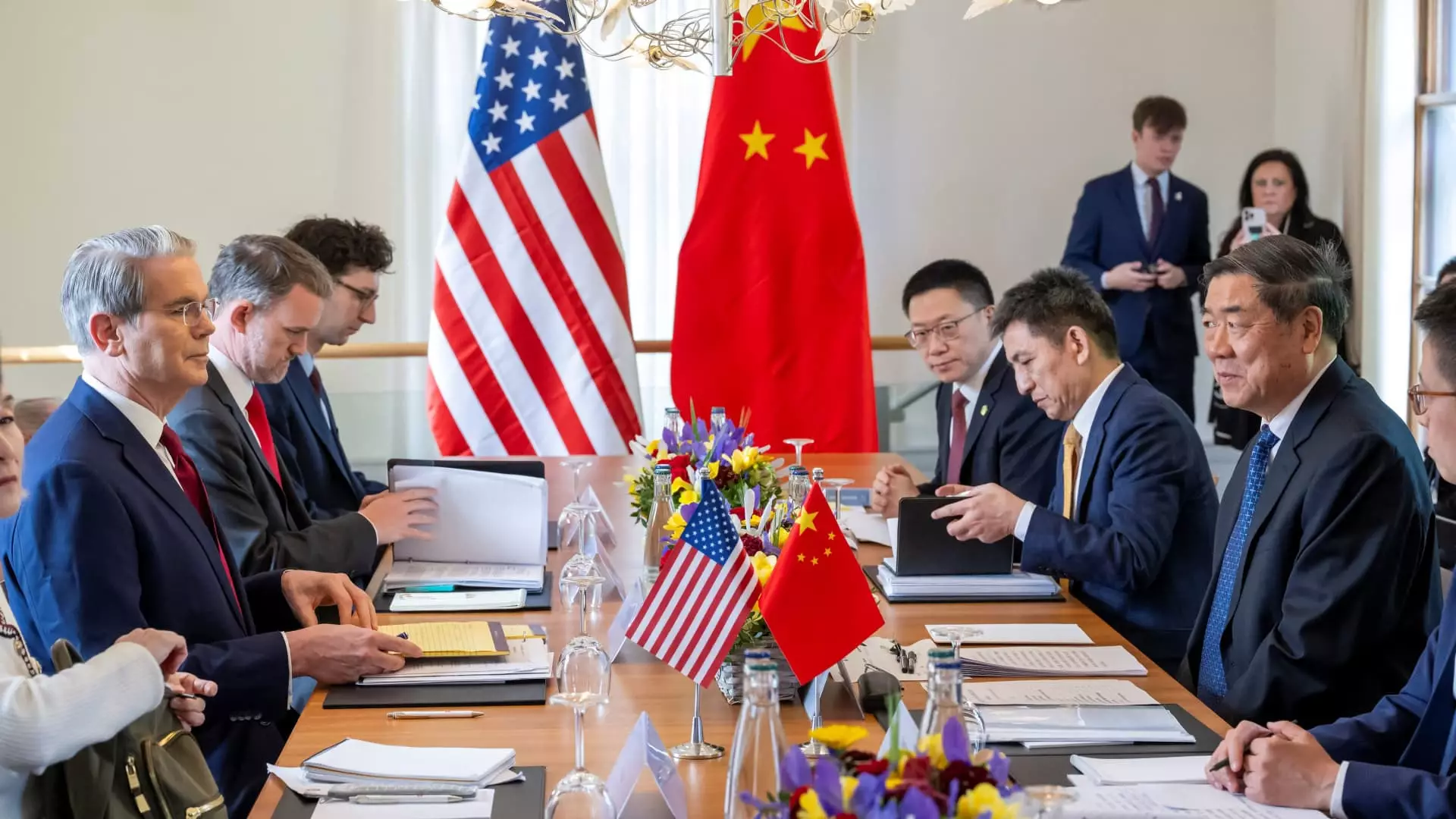The escalating tensions between the United States and China are not just political rhetoric; they are deeply rooted in the economic frameworks that govern global trade. The recent accusations by China against the U.S. regarding the warning on Chinese technological components—specifically targeting companies like Huawei—serve as a stark reminder that these disputes are more than legalistic arguments; they have real-world implications that affect millions. A vital aspect of trade agreements is the mutual trust that enables cooperation and encourages cross-border investments. By issuing alerts that single out Chinese technology firms, the U.S. appears to be undermining the progress made in preliminary trade discussions.
The Illusion of Cooperation
While the Trump administration has publicly touted a “China trade deal,” the actions taken by U.S. agencies suggest a lack of follow-through. The guiding principles of diplomacy are founded on mutual respect and an eagerness to engage constructively, yet the U.S. seems to be straying from these tenets. The release of an alert by the U.S. Commerce Department claiming that certain Chinese chips pose national security risks raises significant issues regarding the integrity of the dialogue. It questions whether genuine efforts for a trading partnership exist or whether we are witnessing a strategic maneuver to reinforce the American tech sector while undermining an increasingly competitive China.
China’s stern response highlights a crucial concern: when a nation perceives its interests as under threat, the concept of collaboration rapidly erodes. The spokesperson for China’s Commerce Ministry claimed that the U.S. was acting in a “discriminatory” manner. Yet, this accusation can also be viewed as a critique of how economic conflict has become the default mode of international relations, with both parties guilty of adopting aggressive postures that ultimately hurt broader economic stability.
The Technological Frontier and Global Innovation
As the world’s landscape continues to evolve with technological innovations, these trade disputes complicate matters even further. Beijing argued that U.S. sanctions jeopardize not just its own economic framework but also the global semiconductor supply chain. This assertion resonates with a universal truth: trade wars can lead to technological stagnation. If countries prioritize protectionism over collaboration, the result is an environment that stifles creativity, innovation, and the open exchange of ideas that have historically propelled societies forward.
By isolating entities like Huawei, the U.S. is not only impacting Chinese companies but also creating barriers for American companies that rely on international partnerships to innovate. A global approach to technology has been one of the major driving forces shaping markets and advancements in recent years. The more fragmented this ecosystem becomes, the less likely breakthroughs in fields like artificial intelligence or renewable energy will arise.
The Overreach of Nationalistic Policies
There is a troubling trend reflected in the words of the Chinese spokesperson—an assertion that “the U.S. is overreaching.” The characterization of U.S. actions as unilateral bullying is not merely a narrative construct; it calls into question the underlying motives of such policies. Is America genuinely committed to a robust international framework for trade, or are we witnessing a prioritization of nationalistic policies that could ultimately backfire?
Indisputable is the reality that the American economy stands to suffer in the long run if it continues down this path. While temporary victories in tariffs and sanctions might yield short-term benefits for specific sectors, such actions can lead to retaliatory measures that create a cycle of mutually assured economic damage. The delicate balance of power in international trade requires cooperation, not coercion; yet, the current trend indicates a willingness to jeopardize that balance in favor of immediate national interests.
In recapitulating the current state of affairs, one cannot ignore the potential ramifications of these trade tensions. The U.S. may find that its strategy of isolating China will backfire, inadvertently losing its competitive edge in the process. The future of trade relations requires a more holistic approach, where mutual respect and collaboration are prioritized over rigidity and intimidation. The path forward will be challenging, but adaptability and openness will be essential in navigating these complex waters.

